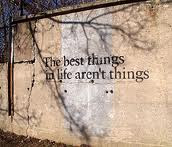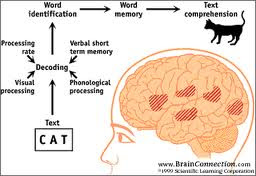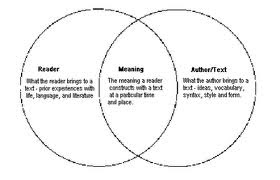Word puzzles come in a variety of formats. You
have your basic crossword, Find A Word, Scrabble, various letter arrangement
games like Jumble or Boggle, Hangman, Charades, Fictionary, Anagram, Spelling
Bee, Spoonerisms and many more. Then there is the Wheel of Fortune and
Countdown.
There are people out there who can play all
these games quite well, easily pulling on a large base of trivia and knowledge
of the English language.
Then there is the average person who is good at
several of them but not so good at the others, finding competition hard, their
knowledge a little less than desired or their grasp of English good but not
fantastic.
And finally there are those who struggle with
all of these games, likely due to English being their second language, learning
difficulties or reading and writing difficulties, a disregard for general
trivia and any number of other factors that impede a person's ability to engage
and puzzle out the answers.
Now here is what I'm interested in. Not what
level you're at if you always perform about the same when playing these games.
No, what I'm interested in is why you could be classed as a mix of two or
three of these levels, depending on the game you are playing.
The brain is an organ but its function isn't
simple and its growth and maturing isn't ever going to occur in the same way
for multiple people. On a macroscopic level it generally all looks about the
same, except for size or growth stage. On a microscopic level you will find the
connections made between neurons will be as individual as fingerprints (or so
the saying goes). This does not mean your neurons have free reign in connecting
however they want, basic brain structure be damned. This means that when the
sections of the brain mature the neurons within each section create connections
according to the information an individual needs to be processed, what that
person perceives, how the person goes about developing motor control, what
excites/aggravates the person, the person's developing urges/impulses and desires,
how the person learns to regulate the environment and their own functions, as
well as the need to remember and learn particular things in order to
survive/pass tests/function in society.

So if everyone is an individual, their brain and
their knowledge base different then everyone's ability to access the language,
recognise and decode patterns, experiment with patterns, recall and respond,
analyse, compete or fight, remain calm when stressed, liken two or more items
together, draw parallels, predict or even see, move or speak will be different.
You may find that while you are exceptionally
good at hangman that you can't see words in a Find A Word because it all looks
like scribbles swimming before your eyes. This could be because of your vision
being poor or it could be because your brain isn't wired to 'see' the patterns,
'seeing' the texture or colour or blocks instead. You can train your brain to
some extent but if it can't be done then it can't be done. You have to live
with what you are, whether you like it or not. Best to try and like it.
That's just one example but the same principle applies
for other combinations.
Why I'm interested in this is because I could be
labelled one of the ones who fall into different categories depending on the game
being played. This isn't because I'm of low intelligence, dysfunctional,
have a learning difficulty or anything else. I'd be classed your average
ordinary to intelligent person who functions well, though with some social
problems re figuring out what to say in general conversations as opposed to
arguments or discussions (does this explain something to some of you?), in the
world and has a good practical knowledge of a lot of different subjects, if not
so good on general trivia such as sports and other topics I consider completely
irrelevant to living my life.
For me, who can read, write, speak and learn
without an excuse as to why I might fail, I find it quite frustrating that my
mind will not always do what I intend it to or hope it will. As a result,
scrabble is daunting with live players but okay with computers, hangman has to
be played with a person and always goes over well, I'm fantastic at Find A Word
but my brain often stalls when searching for answers to crosswords (especially
when I know I know the bleeding answer and it is just there but I can't spit it
out) only to find the answer logged in my memory a day later, all trivia games
are a waste of time unless they include a random challenge topic which I will
find easy while the rest of the questions sound like random words stuck
together. I can play Boggle but when the letters are written I suddenly
struggle. Explain that one for me! Totally irrational.
And here I am stringing sentences using formulas
drawn from repeated patterns I read over and over rather than by having someone
sit me down and plug grammar into my brain. Spelling, yes. I had plenty of
spelling lessons, just not any on grammar past “This is a full stop” and “This
is a comma”.
But totally irrational isn't far from what the
brain is at times. Well, the conscious part anyway. Well, the unconscious too.
Yes, the brain can be just plain ridiculous at times. At least it isn't all the
time.
Conclusion: We each learn, adopt, adapt and
function in our own ways, saying that is what makes us individual. We accept
that we each have our own skills and failings, some obvious and some not. We
work hard to accept others as we are pack animals by nature and the need to
belong to a group is strong. To belong we accept many things we otherwise might
not. Please apply this acceptance of individuality to your own and others'
ability to perform not just in such things as word games but also in
everything. Try not to go calling people or yourself an idiot for not being able to do something no matter how hard you try. I bet you're good at something else instead.




















